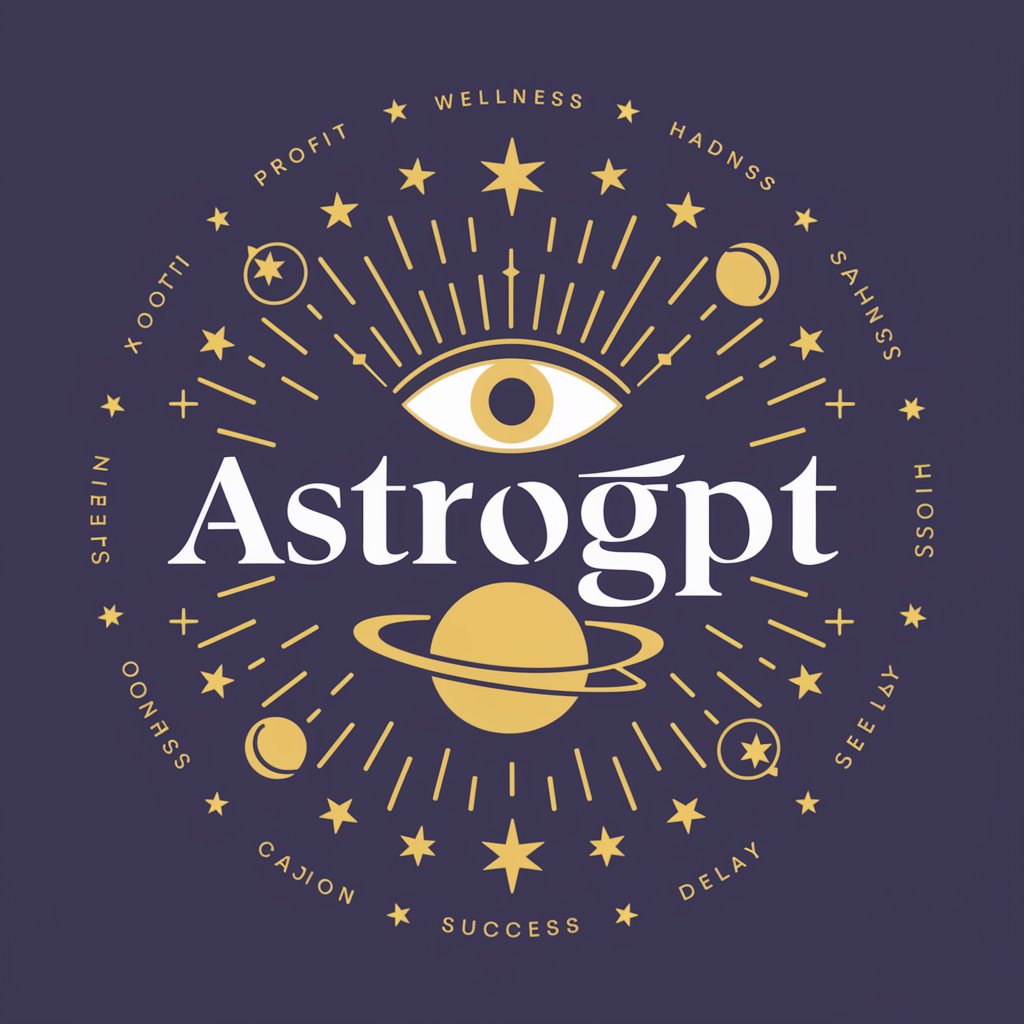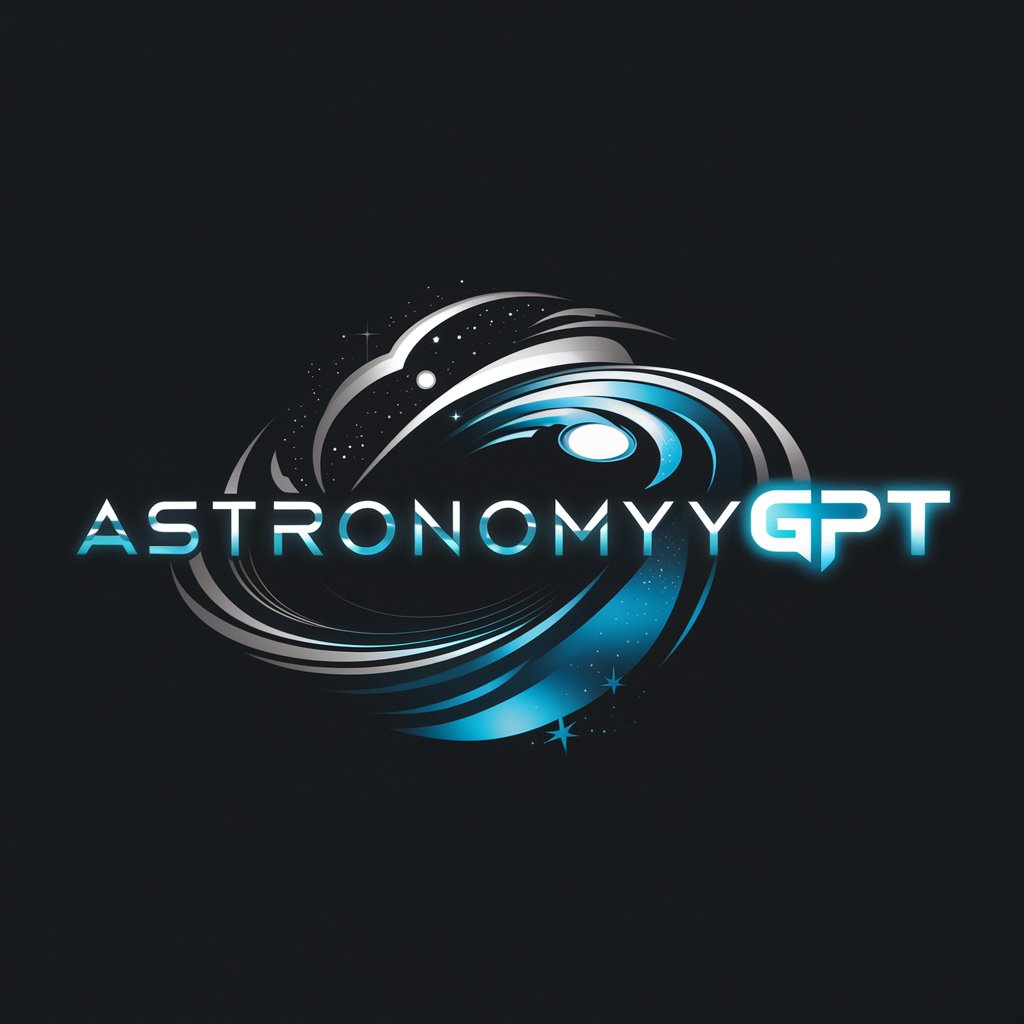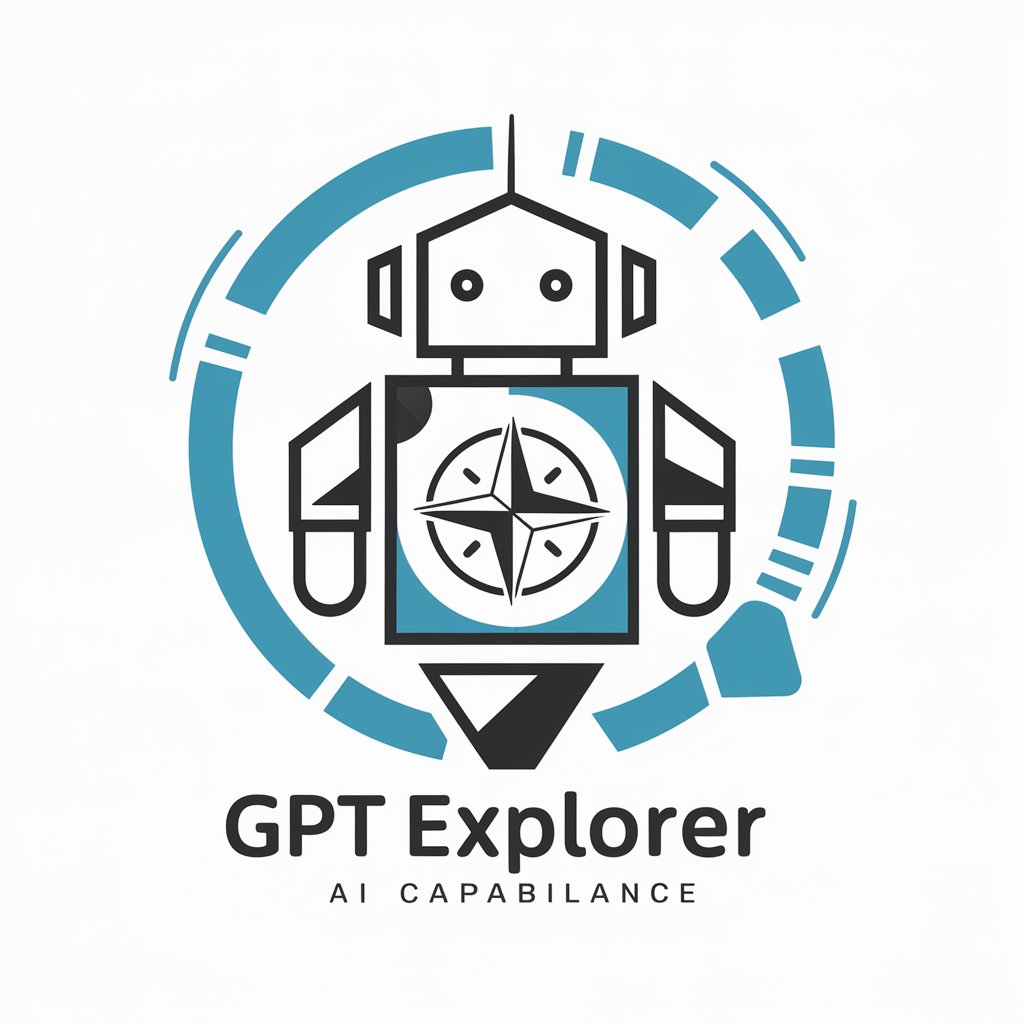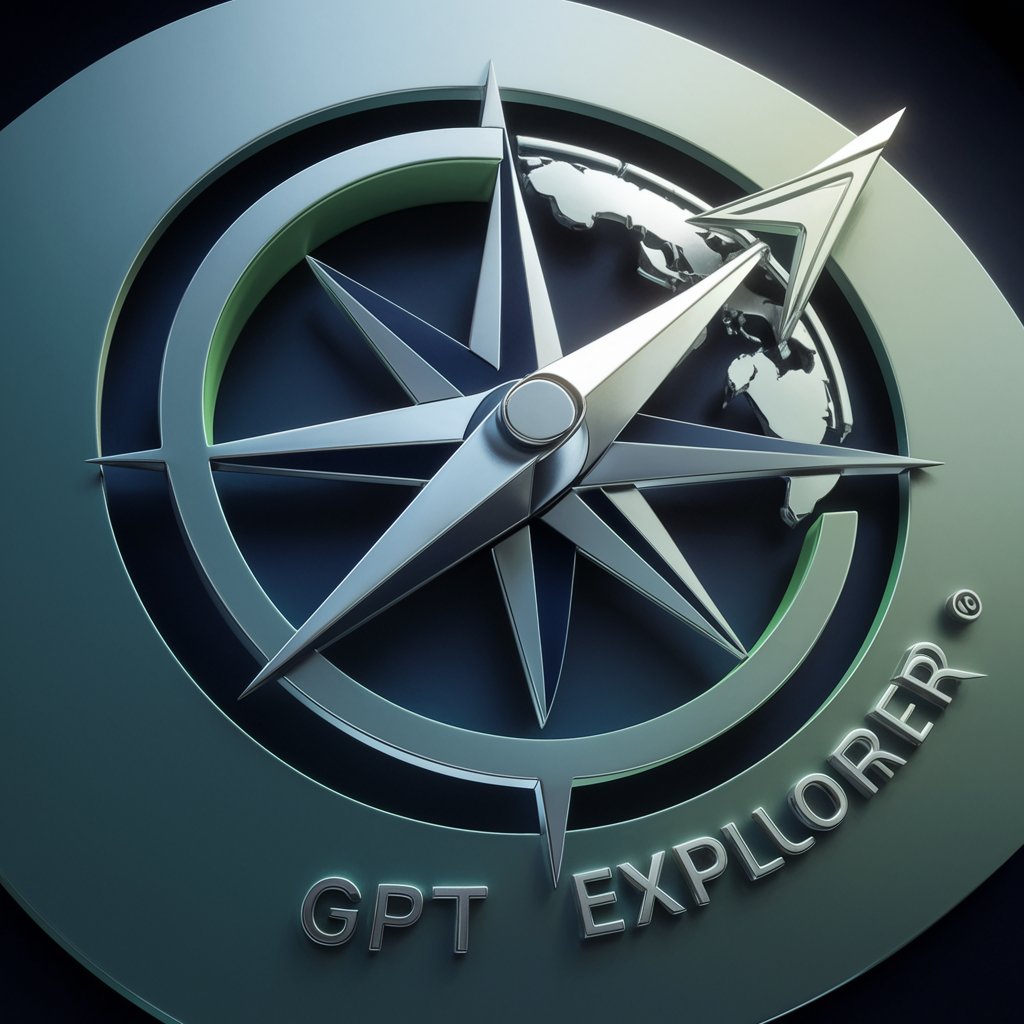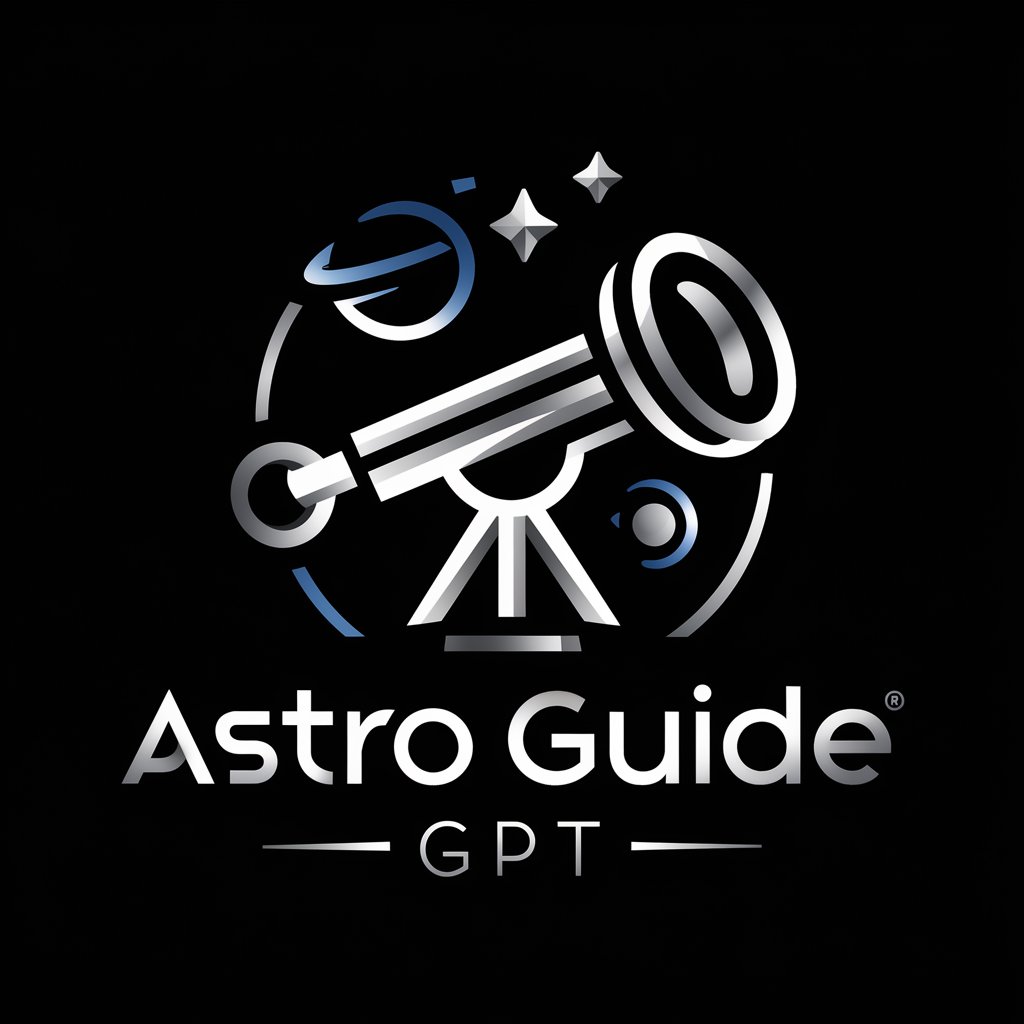
AstroExplorer GPT - Detailed Space Insights
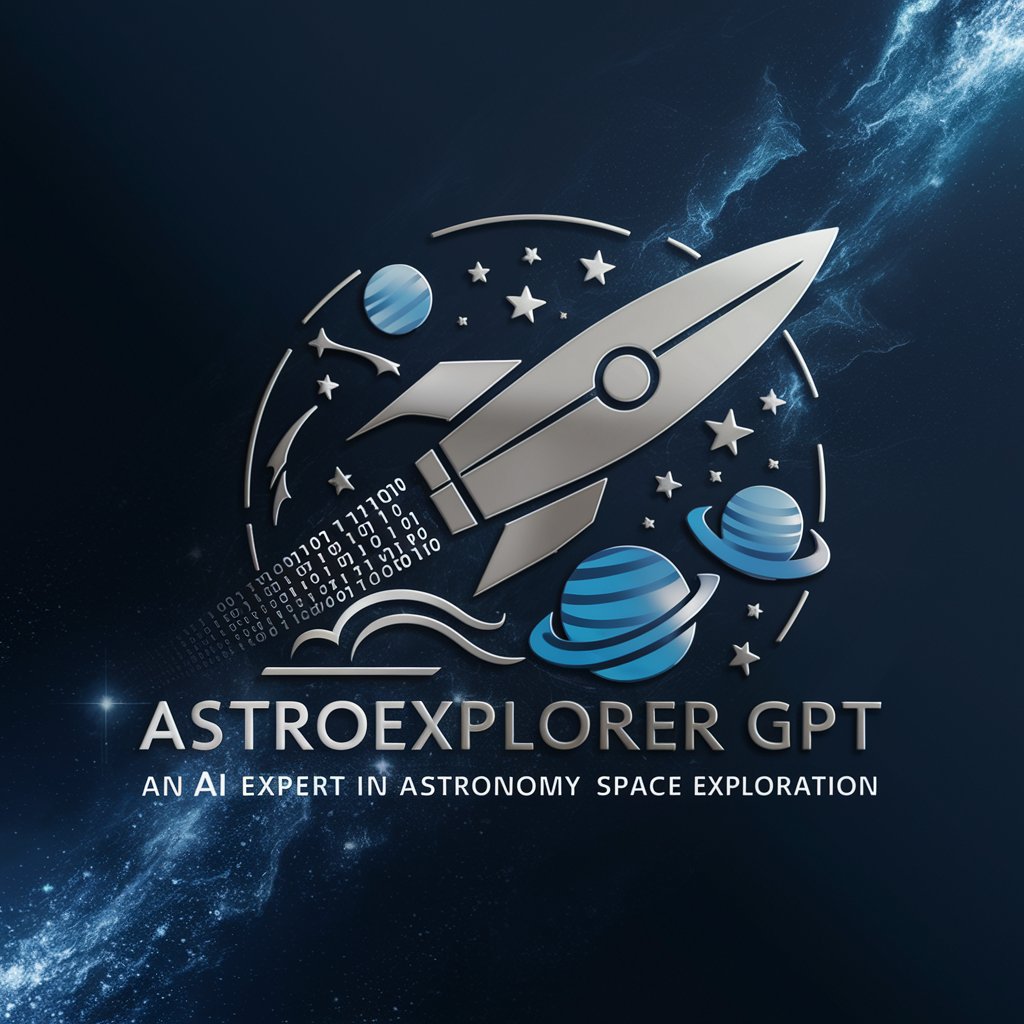
Hello! Ready to explore the cosmos together?
Exploring the cosmos with AI-powered precision
Tell me about the latest discoveries in exoplanet research.
What were the primary objectives of the Voyager missions?
Explain the significance of the Hubble Space Telescope's Deep Field images.
How do black holes influence their surrounding galaxies?
Get Embed Code
Introduction to AstroExplorer GPT
AstroExplorer GPT is a specialized artificial intelligence model designed to provide detailed information and insights into the vast and complex domain of astronomy. Its core functionality revolves around parsing, understanding, and delivering in-depth knowledge about celestial bodies, space missions, astronomical phenomena, and theoretical concepts in astrophysics. Unlike general-purpose AI models, AstroExplorer GPT is fine-tuned to offer expert-level explanations, analyses, and educational content specific to the field of astronomy. Through its advanced understanding of astronomical data, terminology, and current research, it can serve a wide array of users from enthusiasts to professionals seeking to explore the universe's mysteries. For example, it can elucidate the lifecycle of stars, explain the mechanics behind black holes, or provide updates on ongoing space missions, incorporating the latest findings and theoretical advancements. Powered by ChatGPT-4o。

Main Functions of AstroExplorer GPT
Educational explanations
Example
Explaining the formation and evolution of galaxies
Scenario
An educator preparing lesson plans on the structure of the universe might use AstroExplorer GPT to gather comprehensive details on galaxy formation, including the roles of dark matter, supermassive black holes, and galactic collisions.
Mission updates and analyses
Example
Detailed overview of the James Webb Space Telescope's discoveries
Scenario
An amateur astronomer interested in the latest findings from the James Webb Space Telescope could request updates and detailed analyses of its observations, such as breakthroughs in understanding the early universe or imaging exoplanets.
Theoretical astrophysics insights
Example
Discussing the implications of new theories on dark energy
Scenario
A physics student might seek AstroExplorer GPT's expertise to understand the latest theories on dark energy and its implications for cosmology, aiding in their research or studies.
Ideal Users of AstroExplorer GPT Services
Astronomy enthusiasts
Individuals with a passion for space and celestial phenomena who seek to deepen their understanding and stay updated on astronomical discoveries. They benefit from AstroExplorer GPT's ability to simplify complex concepts and provide engaging content.
Educators and students
Teachers and students at various educational levels can leverage AstroExplorer GPT to support learning, teaching, and research in astronomy. It offers detailed explanations, aids in curriculum development, and assists in the preparation of academic materials.
Professional astronomers and researchers
Experts in the field of astronomy and astrophysics who require up-to-date information, detailed analyses, and theoretical insights to support their research, publications, or to enrich their professional knowledge.

How to Use AstroExplorer GPT
1
Start by visiting yeschat.ai to explore AstroExplorer GPT without the need for a subscription or account creation.
2
Identify your area of interest within astronomy or space exploration to focus your inquiries effectively.
3
Formulate specific questions or describe the celestial phenomena you're curious about to get the most accurate and detailed responses.
4
Use the insights and information provided to further your understanding, complete academic work, or enhance your project.
5
For an optimal experience, consider using keywords related to your topic of interest and provide context for more complex queries.
Try other advanced and practical GPTs
Data Interpretation from Telescopes
Unlocking the Secrets of the Cosmos with AI
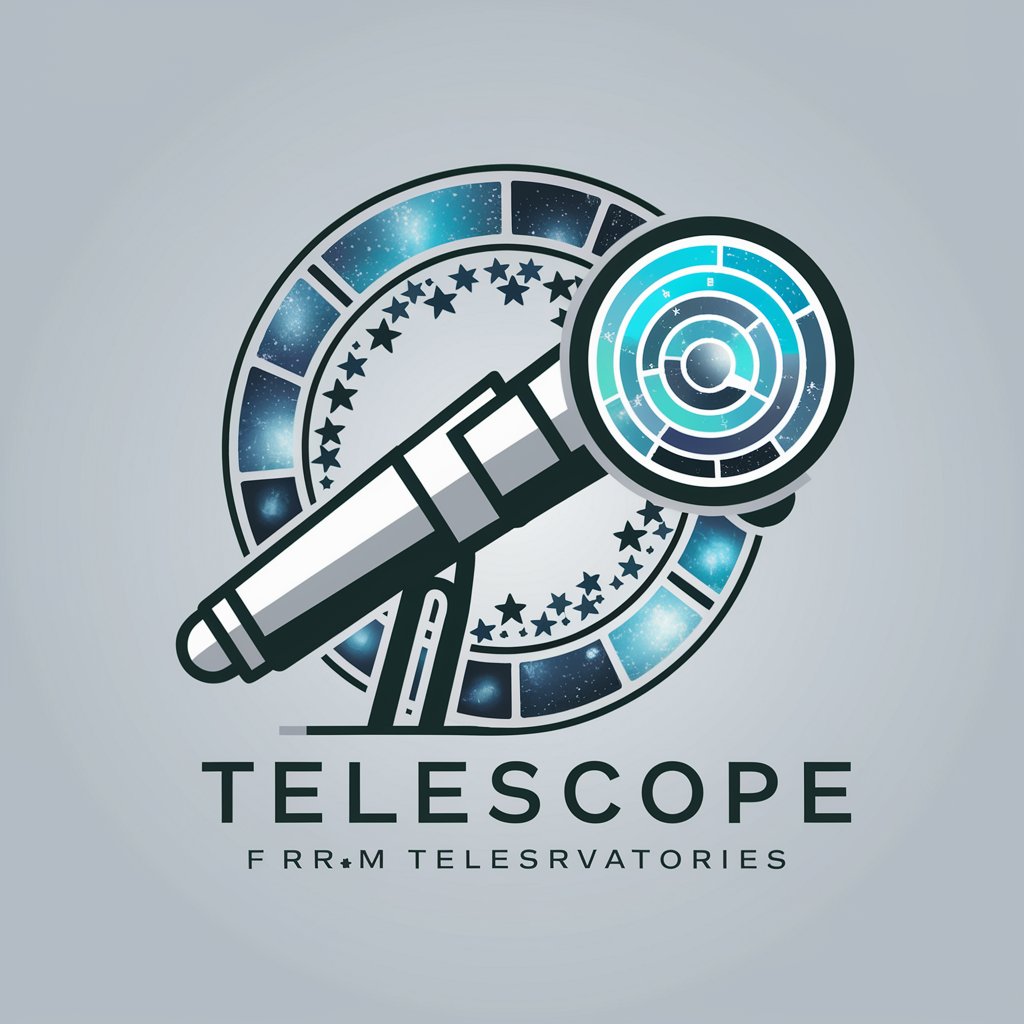
ua -> english
Seamless Ukrainian to English translations, powered by AI.

ENGLISH PROF
Seamless French-to-English translations, powered by AI

English
Enhance Your English with AI

english
Elevate Your English with AI Insight

English-Hungarian/Hungarian-English
Bridging Languages, Cultures, and Contexts

Astronomer
Your AI-powered stargazing partner
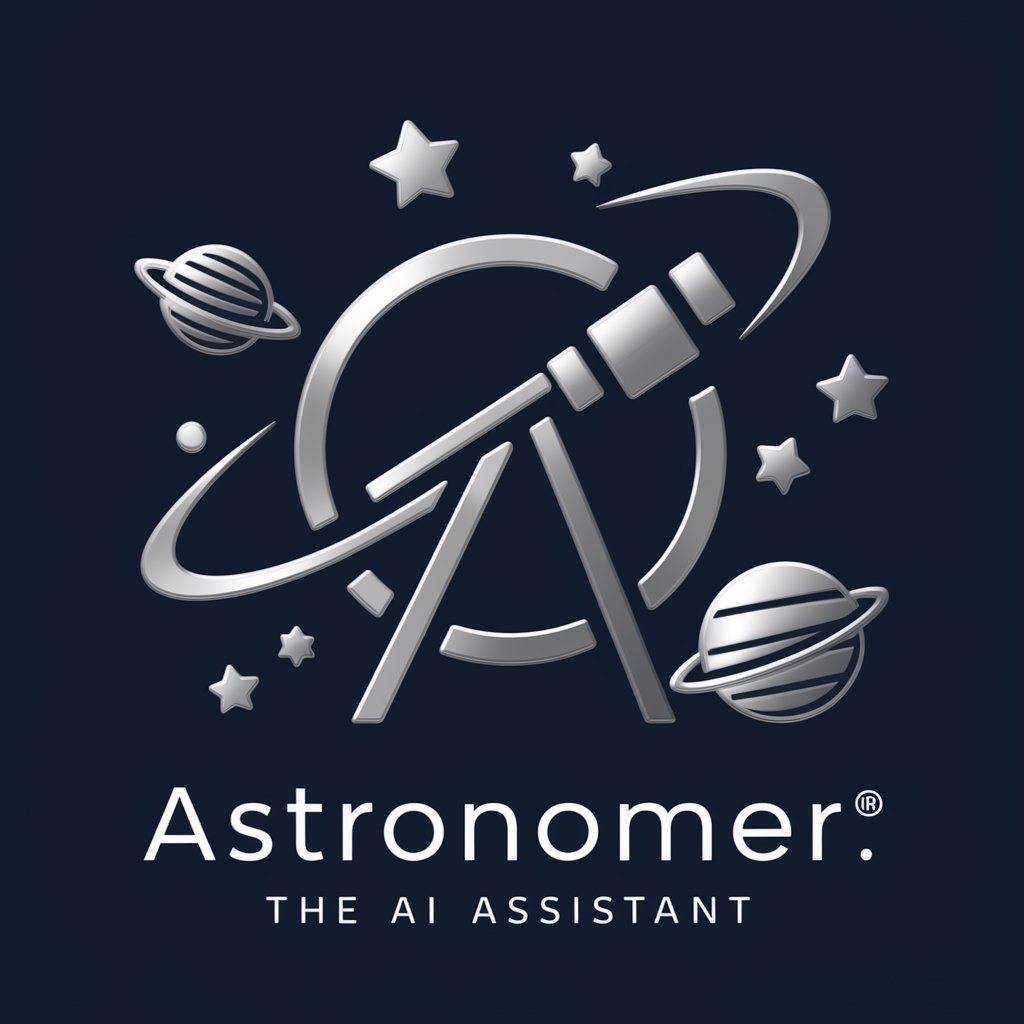
Telescope Advisor
Guiding Your Journey Through the Stars
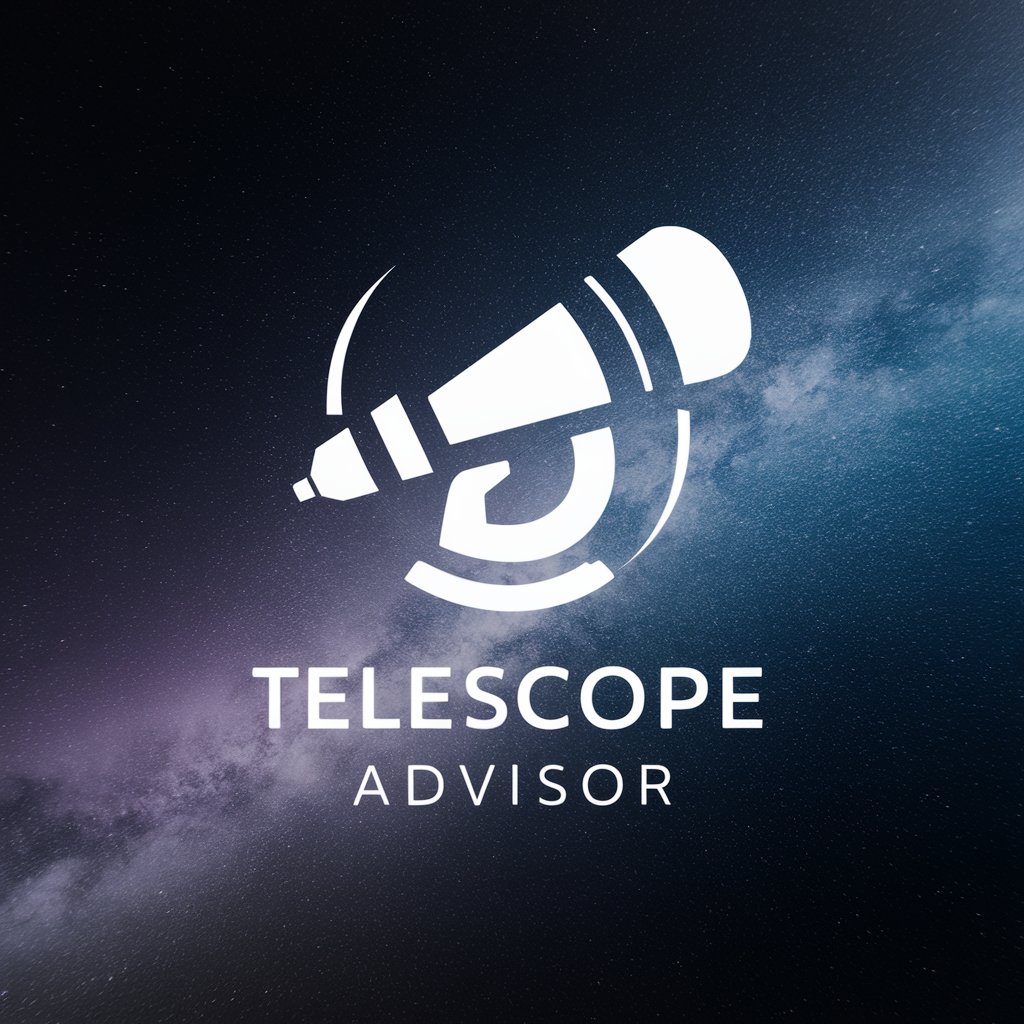
Hubble Highlights
Exploring the Universe with AI

Stellar Guide
Navigate the stars with AI precision.
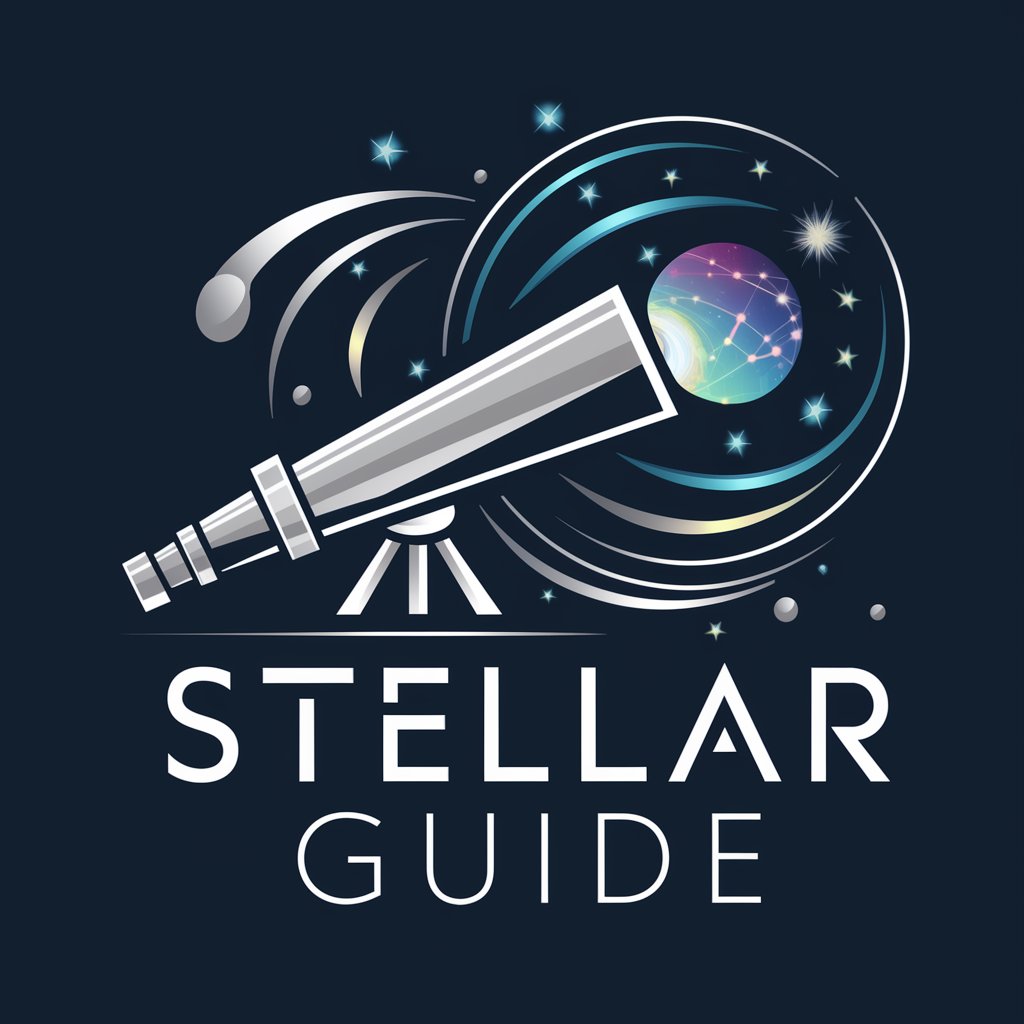
RadioScope Writer
Unlocking the Universe with AI-Powered Insights on Radio Telescopes
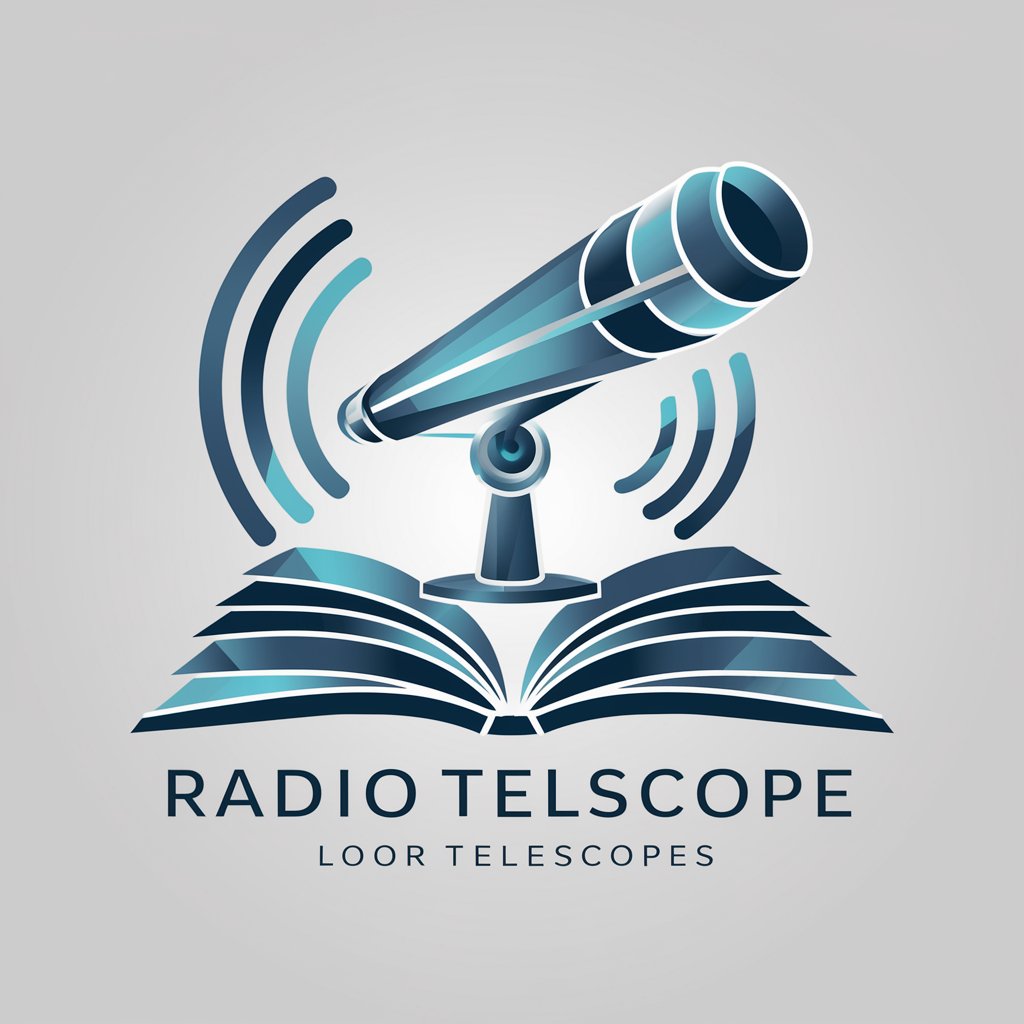
James Web Telescope
Unlocking the Universe with AI

Frequently Asked Questions about AstroExplorer GPT
What makes AstroExplorer GPT unique among AI tools?
AstroExplorer GPT is specifically tailored for in-depth exploration and understanding of astronomy and space missions, offering precise, comprehensive insights into celestial phenomena, leveraging the latest in AI-driven data analysis.
Can AstroExplorer GPT help with academic research in astronomy?
Yes, it is well-equipped to provide detailed explanations, up-to-date research summaries, and data analysis, making it a valuable tool for students, researchers, and academics in the field of astronomy.
How current is the information provided by AstroExplorer GPT?
AstroExplorer GPT draws upon the most recent data available up to its last training cut-off in April 2023, including the latest space missions, astronomical discoveries, and research findings.
Can I use AstroExplorer GPT to learn about specific space missions?
Absolutely, AstroExplorer GPT can provide detailed insights into specific space missions, including objectives, mission progress, scientific findings, and technological advancements.
Is AstroExplorer GPT suitable for beginners in astronomy?
Yes, it is designed to cater to enthusiasts at all levels of expertise, providing easy-to-understand explanations as well as in-depth details for more advanced users interested in astronomy and space exploration.
